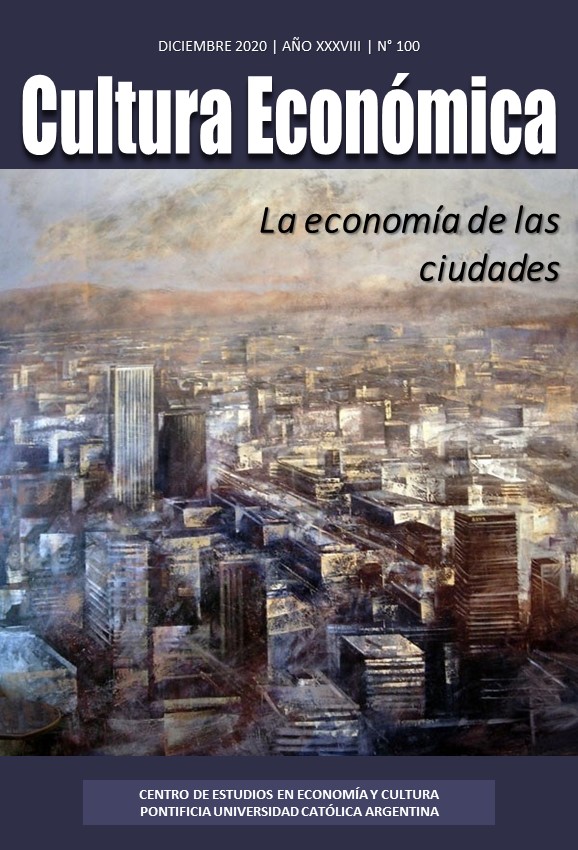Environmental awareness in adulthood. A study of the hierarchy of Sustainable Development Goals
Keywords:
ENVIRONMENTAL PSYCHOLOGY, SUSTAINABLE DEVELOPMENT GOALS, ADULTHOOD, PRO-ENVIRONMENTAL BEHAVIORSAbstract
The purpose of this paper is to assess how adults rank the Sustainable Development Goals (SDGs) and the importance they attach to the SDGs related to caring for the environment, as well as their interest in participating in pro-environmental activities and their opinion on environmental education. The sample comprised 170 adults (85 women and 85 men) from the city of Paraná and Oro Verde, Province of Entre Ríos, Argentina. It includes two subsamples by age: 75 young adults (44.1%) and 95 middle and late adults (55.9%). The environment is not a priority for the adults in this sample, they ranked higher the development goals of fight against poverty, promotion of health and education.Downloads
References
CEPAL (2018). La Agenda 2030 y los Objetivos de Desarrollo Sostenible: una oportunidad para América Latina y el Caribe. Objetivos, metas e indicadores mundiales. Santiago: Publicaciones de las Naciones Unidas. https://repositorio.cepal.org/bitstream/handle/11362/40155/24/S1801141_es.pdf
Corraliza, J. A. & Arangonés, J. I. (2002). “Psicología Ambiental e Intervención Psicosocial”. Intervención Psicosocial, 11(3), 271-275.
Chen, X., Peterson, M. N., Hull, Vanessa, Lu, Ch., Lee, G. D., Hong, D. & Liu, J. (2011). “Effects of attitudinal and sociodemographic factors on pro-environmental behaviour in urban China”. Environmental Conservation, 38(1), 45-52.
Franzen, A. & Meyer, R. (2010). “Environmental attitudes in cross-national perspective: A multilevel analysis of the ISSP 1993 and 2000”. European Sociological Review, 26(2), 219-234.
Gudynas, E. (1992). “Los múltiples verdes del ambientalismo latinoamericano”. Nueva Sociedad, 12(2), 104-115.
Hlaing, K. S. (2016). The effects of environmental knowledge, environmental attitude and Socio-Demographic factors on pro-environmental behavior in Mandalay. Research Report. Myanmar Academy of Arts and Science.
Moyano Díaz, E., Palomo Vélez, G. & Moyano Costa, P. (2015). “Creencias ambientales e ideología en población chilena”. Universum, 30(2), 219–236. https://doi.org/10.4067/s0718-23762015000200013
Organización Naciones Unidas (ONU) (2015). Transformar nuestro mundo: la Agenda 2030 para el Desarrollo Sostenible (Resolución aprobada por la Asamblea General el 25 de septiembre de 2015). New York: ONU.
Palavecinos, M., Amérigo, M., Ulloa, J. B. & Muñoz, J. (2016). “Preocupación y conducta ecológica responsable en estudiantes universitarios: estudio comparativo entre estudiantes chilenos y españoles”. Intervención Psicosocial, 25(3), 143-148. https://doi.org/10.1016/j.psi.2016.01.001
Sachs, J. D. & Vernis, R. V. (2015). La era del desarrollo sostenible. Barcelona: Ediciones Deusto.
Survey Research Institute (SRI) (2008). Cornell National Social Survey. New York: Cornell University.
Xiao, C & Hong, D. (2010). “Gender differences in environmental behaviors in China”. Population and Environment, 32(1), 88-104. https//doi.org/10.1007/s11111-010-0115-z
Downloads
Published
How to Cite
Issue
Section
License













